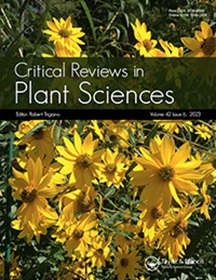Polyamines as Universal Bioregulators across Kingdoms and Their role in Cellular Longevity and Death
IF 4.9
2区 生物学
Q1 PLANT SCIENCES
引用次数: 0
Abstract
Abstract Polyamines (PAs) are important molecules that determine cell longevity or death. Studies have shown that nutritional supplementation with spermidine can reduce age-related pathology and increase life span in a number of organisms, including humans. In addition, applying PAs to plants prevents their senescence. This review aims to provide an integrated understanding of the regulation of PA metabolism and its effect(s) on cell homeostasis. PA metabolism is universal for plants and animals. Research has shown that increased levels of PA synthesizing enzymes are associated with cell proliferation, whereas activation of the PA catabolic pathway increases oxidative stress and leads to aging/senescence due to cellular damage. Intracellular PA levels are regulated at the transcriptional and translational levels of the PA metabolic genes. The cis-acting regulatory elements and transcription factors determine the tissue-, developmental stage-, and stress-specific expression of a gene. At the translational level, it is regulated by miRNAs targeting mRNAs for cleavage or translational suppression. The byproducts of PA metabolism, such as hypusine and acrolein, are important for cell survival or death. PAs and their metabolic enzymes play several other important roles in plant and animal physiology via their effects on chromatin condensation, histone acetylation, histone deacetylation, transmethylation, and protein-protein interactions. This review focuses on the role(s) of PAs as universal bioregulators in processes across kingdoms, with specific reference to regulation of cellular longevity and death.多胺作为跨王国的通用生物调节剂及其在细胞寿命和死亡中的作用
摘要多胺是决定细胞寿命或死亡的重要分子。研究表明,补充亚精胺营养可以减少包括人类在内的许多生物体与年龄相关的病理学,延长寿命。此外,将PAs应用于植物可以防止其衰老。这篇综述旨在对PA代谢的调节及其对细胞稳态的影响提供一个完整的理解。PA代谢对植物和动物来说是普遍的。研究表明,PA合成酶水平的增加与细胞增殖有关,而PA分解代谢途径的激活会增加氧化应激,并因细胞损伤而导致衰老。细胞内PA水平在PA代谢基因的转录和翻译水平上受到调节。顺式作用的调节元件和转录因子决定了基因的组织、发育阶段和应激特异性表达。在翻译水平上,它受到靶向信使核糖核酸的miRNA的调节,用于切割或翻译抑制。PA代谢的副产物,如羟脯氨酸和丙烯醛,对细胞存活或死亡很重要。PAs及其代谢酶通过对染色质缩合、组蛋白乙酰化、组蛋白脱乙酰化、跨甲基化和蛋白质-蛋白质相互作用的影响,在植物和动物生理学中发挥其他几个重要作用。这篇综述的重点是PAs作为通用生物调节剂在跨王国过程中的作用,特别是对细胞寿命和死亡的调节。
本文章由计算机程序翻译,如有差异,请以英文原文为准。
求助全文
约1分钟内获得全文
求助全文
来源期刊
CiteScore
12.90
自引率
1.40%
发文量
15
审稿时长
>12 weeks
期刊介绍:
Critical Reviews in Plant Sciences focuses on presenting in-depth and up-to-date reviews of timely and/or cutting-edge subjects in the broad discipline of plant science, ranging from molecular biology/biochemistry through the areas of cell biology, plant pathology and physiology, genetics, classical botany, and ecology, to practical agricultural applications. Articles in the journal provide an up-to-date literature base for researchers and students, pointing the way towards future research needs. The journal is also a significant source of credible, objective information to aid decision makers at all levels.

 求助内容:
求助内容: 应助结果提醒方式:
应助结果提醒方式:


